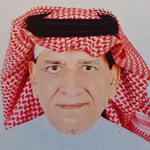GIKI, Topi, Pakistan | December 02-04, 2025

invited speakers
Click on a picture to view talk abstract.
Title: Securing the Edge: An AI-Driven Detection of Intrinsic Cyber Threats via Current-Profiling in IoT Networks |
|
|
Dr. Uvais Qidwai
Associate Professor of Computer Engineering Qatar University, Qatar |
|
|
Abstract:
With the rapid proliferation of IoT and edge computing in critical infrastructures—ranging from agriculture to smart surveillance—the attack surface has expanded, and so have the stealth and sophistication of cyber threats. Traditional signature-based detection systems often fall short in resource-constrained environments, failing to detect subtle, hardware-level manipulations. This talk presents a novel intrusion detection approach that utilizes profiling the current consumption in real-time combined with AI-based classification techniques to identify and respond to hardware intrinsic cyberattacks. |

Dr. Uvais Qidwai |
|
The presented work is a funded grant from Qatar Research Development and Innovation Council
(QRDI) and evaluates a subset of targeted attacks in the forms of hardware trojans or hardware
intrinsic attacks. Those that have been successfully implemented as part of the project, while more
are being encoded, include Covert Channel Attacks (CCA), Power Depletion Attacks (PDA),
Denial-of-Service Attack (DoSA), and Man-in-the-Middle Attack
(MIMA)—deployed on an experimental testbed of ESP32 microcontrollers based IoT nodes and a Raspberry Pi 5-based edge
node. The AI-driven intrusion detection system (IDS), analyzes current profiles and sensor data
transmitted via UDP protocol to detect anomalies using a suite of ML classifiers such as Ensemble
Learning, LDA, Decision Trees, k-NN, and SVM, for comparison and selection of best technique. The results demonstrate high detection accuracy and low false positive rates, validating the approach for practical deployment in real-time, mission-critical IoT environments. By deploying machine learning classifiers, including Ensemble Learning (Bagging and LPBoost), the system effectively classified cyberattacks such as Covert Channel Attack (CCA), Power Depletion Attack (PDA), Denial-of-Service Attack (DoSA), and Man-in-the-Middle Attack (MIMA). The classification results indicate that ensemble learning techniques (Bagging and LPBoost) provided the highest accuracy, with Bagging achieving 99.78% accuracy and LPBoost reaching 98.03% accuracy, demonstrating their robustness in real-time threat detection scenarios. |
|
|
Speaker Biography:
Uvais Qidwai received his Ph.D(EE). from the University of Massachusetts–Dartmouth USA in 2001. He taught in the EECS Department at Tulane University in New Orleans USA as Assistant Professor, and was in-charge of the Robotics lab as well as a research member of Missile Defense Center, during June 2001 to June 2005. His current affiliation (since September 2005) is with the Department of Computer Science & Engineering at Qatar University, Qatar where he is Associate Professor of Computer Engineering at present. His research interests include Smart system design and AI-based embedded systems and techniques in Robotics applied to healthcare and industrial applications. He has participated in several government- and industry-funded projects in the United States, Saudi Arabia, Qatar, UAE, Singapore, Malaysia, and Pakistan. He has published over 150 papers in reputable journals and conference proceedings, and has been granted two US and one GCC patents. | |
Title: Shaping a Sustainable Future: Harnessing Laser-Driven Synthesis of Advanced Materials for Renewable Energy Generation, Energy Storage, and Green Hydrogen |
|
|
Dr. M. A. Gondal
Professor of Physics IRC-Hydrogen & Energy Storage and K.A.CARE Energy Research and Innovation Center King Fahd University of Petroleum & Minerals (KFUPM), Dhahran 31261, Saudi Arabia |
|
|
Abstract:
The ability to tailor the properties of materials by modifying their size, structure, and composition is crucial for the development of functional materials. Nanoscale materials, in particular, exhibit unique physical, chemical, and optical characteristics that make them ideal building blocks for advanced applications. Our research group has developed a simple, environmentally friendly, and versatile method - Pulsed Laser Ablation in Liquids (PLAL) - to synthesize functional nanocomposite materials with tailored properties. |

Dr. M. A. Gondal |
|
The PLAL process involves the irradiation of precursor materials in a liquid medium with a pulsed laser beam, enabling precise control over particle size and structure through photo-induced fragmentation, chemical reactions, and defect engineering. This keynote speech will highlight our recent advances in the PLAL-based synthesis of advanced functional materials and their applications in sustainable energy and environmental remediation.
Selected examples from our research group's work will be presented, demonstrating the potential of this technique to drive innovation in these critical area. *The author is thankful to KFUPM for supporting this work under project ##INHT2513 |
|
Title: Digital Twin for the Manhattan Grid: A Simulation Framework for Traffic Management Research |
|
| Dr. Junaid Zubairi | |
|
Contributors:
Megan Johnson, Junaid Zubairi (presenter), Sahar Idwan, Wael Etaiwi and Syed Haider, Smart City Research Group, State University of New York at Fredonia, USA. Abstract: Our research group is working on traffic management in smart cities. The negative effects of traffic congestion in major cities include waste of fuel, waste of time and adverse effects on the temperament of drivers resulting in accidents. A study estimated the public health cost of congestion across 83 U.S. cities to be nearly $43 billion. We have modeled the digital twin of a portion of Manhattan grid and implemented hierarchical routing, reactive congestion control and route planning for emergency vehicles for reduction in disaster response time. In this presentation, we are going to discuss the simulation platform, configuration parameters and load effects on the grid. We address the traffic management issues including multi-modal traffic integration, data fusion from heterogeneous sources and traffic capacity planning for future alterations and lane/road closures due to scheduled events or sudden mishaps. |

Dr. Junaid Zubairi Prof. SUNY Fredonia, NY, USA |
|
Speaker Biography:
Dr. Junaid Ahmed Zubairi received his BE (Electrical Engineering) from NED University of Engineering, Pakistan and MS and Ph.D. (Computer Engineering) from Syracuse University, USA. He worked in Space Research Commission and then joined various institutions in Pakistan and Malaysia where he was engaged in research and curriculum and lab development. In 1999, he accepted a position in State University of New York at Fredonia where currently he is SUNY Distinguished Professor and department chair in the computer science department. He has won many awards and grants including AURAK Presidential award for exceptional academic service, SUNY Chancellor's award for excellence in research and creative activities, Kasling Memorial Lecture award, SUNY Distinguished Professorship, NSF I-CORPS award ($50k), Malaysian Government IRPA research award ($62k), NSF MACS grant ($400k), multiple SUNY scholarly incentive awards and AURAK UAE grant. His research interests include network traffic engineering, network applications and smart city and IoT applications. He has edited two books on network applications and security and has numerous peer reviewed publications including book chapters, journal articles and papers in conference proceedings. He can be reached at zubairi at fredonia.edu. |
|




 conference program
conference program


